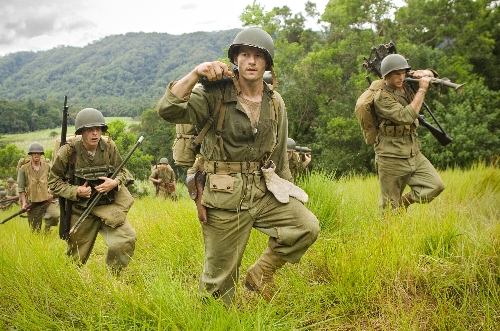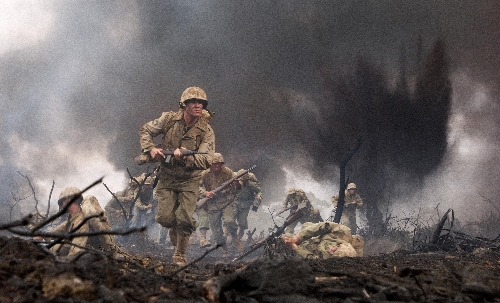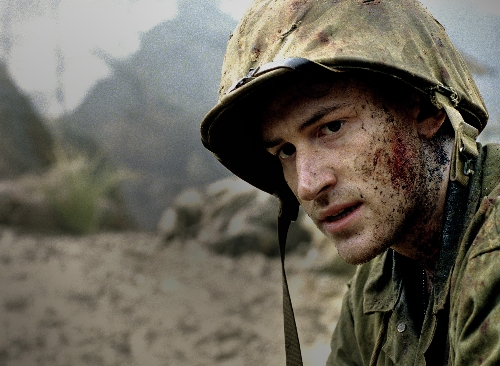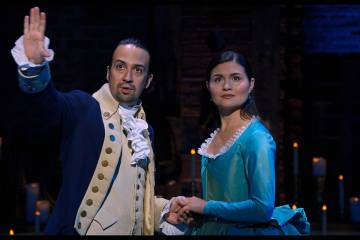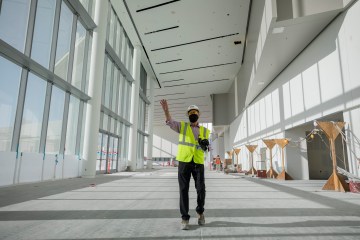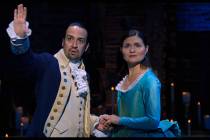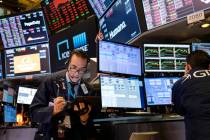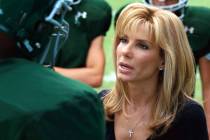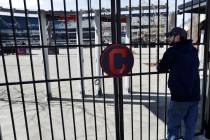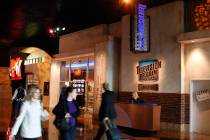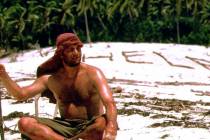HBO’s ‘The Pacific’ an overdue tribute to the Marines
Everything I need to know about American history, I learned from Tom Hanks.
TV has had a fairly spotty record of presenting our nation's past. For the longest time, I thought the Korean War lasted 11 years and was fought primarily by surgeons and cross-dressers. But since 1998, Hanks and HBO have been educating viewers on an epic scale with "From the Earth to the Moon," "John Adams" and "Band of Brothers."
That partnership continues with the stirring, 10-part, must-see event "The Pacific" (9 p.m. today, HBO). Although while it's a companion to the 2001 World War II masterpiece, no matter how much you or I or HBO might want it to be, "The Pacific" isn't "Band of Brothers 2."
By following an entire company -- Easy Company, 2nd Battalion, 506th Regiment of the Army's 101st Airborne Division -- "Brothers" felt like it told the story of a generation. "The Pacific," meanwhile, tells the story of three men: PFC Robert Leckie (James Badge Dale), PFC Eugene Sledge (Joe Mazzello) and Sgt. John Basilone (Jon Seda). While they're all members of the 1st Marine Division, there's almost no interaction among the three, which makes the plentiful combat scenes more difficult to follow.
"Brothers" has become World War II's version of "Diner," having made room for everybody from David Schwimmer to Jimmy Fallon. This time around, there are hardly any recognizable faces, which adds to the authenticity but makes it that much harder to tell everyone apart in the rain, mud and darkness.
The biggest difference, though, is that while "Brothers" created a dozen or so distinct, memorable characters, aside from "The Pacific's" three main stars, only Cpl. Merriel "Snafu" Shelton (Rami Malek) really registers, and that's largely because he's played with the wide, wild eyes and general demeanor of a Tennessee Williams heavy.
But enough of what "The Pacific" isn't. Here's what it is: a sprawling, harrowing, long overdue tribute to the guts and glory of the Marines.
"The Pacific" shows that, unlike the battlefields of the European Theater, there were no towns or villages to offer comfort. No liberty passes to Paris. Aside from some respite in Australia, the Marines' best hope for a decent meal and a roof over their heads was a short hospital stay.
Their story, which hasn't been told nearly enough, bounces from one hellish outcropping to the next, a trip through what Lt. Gen. Lewis B. "Chesty" Puller (William Sadler) refers to as "tiny specks of turf that we have never heard of."
The lush, vibrant greens of Guadalcanal soon give way to torrents of rain and oceans of mud. And before long, seemingly half of Japan is running straight at Basilone's machine gun. So many Japanese die by his hand, Basilone has to run out and clear the stacked bodies so he can continue killing.
But that just sets the stage for the brutality to come.
Some of it is minimalist, staged in near darkness, little more than a lightning flash, a muzzle flash and a red mist of blood. Other times, it's extravagant, as in the storming of the beach at Peleliu. In a remarkable two-minute tracking shot, Sledge slowly makes his way from the water to the jungle's edge as mortars pound the sand, bullets whiz by and fighter planes scream overhead. It's visceral, terrible and makes that beach seem like the last place in the world anyone should ever be.
Yet even that pales in comparison to the staggering losses suffered in the charge across the Peleliu airfield. Helmets and limbs fly in every direction in the cinematic equivalent of sending young men sprinting into a meat grinder. The sheer spectacle of it all is as much an assault on the senses as it is an assault on the enemy.
It took a crew of 800 people nine months of filming and 20 months of postproduction to bring "The Pacific" to life. And its reported $195 million budget would cover somewhere between two and three full seasons of a standard network drama. But its most moving episodes still put the characters ahead of the combat.
Whether it's following Leckie's Australian courtship in episode three, or witnessing the sweeping beauty of Basilone's struggle with his newfound celebrity on the home front in episode eight, these are the moments that best complement "Band of Brothers," still one of the finest things ever produced for television.
Sadly, there's one area in which "The Pacific" can't compete with its predecessor: the interviews with the real men that accompanied each "Brothers" episode.
After Guadalcanal, Peleliu and, ultimately, Iwo Jima and Okinawa, not to mention the passage of time, there just aren't enough Marines celebrated in "The Pacific" who are still alive to tell their stories.
And that just may be Hanks' most moving lesson yet.
Christopher Lawrence's Life on the Couch column appears on Sundays. E-mail him at clawrence@ reviewjournal.com.



